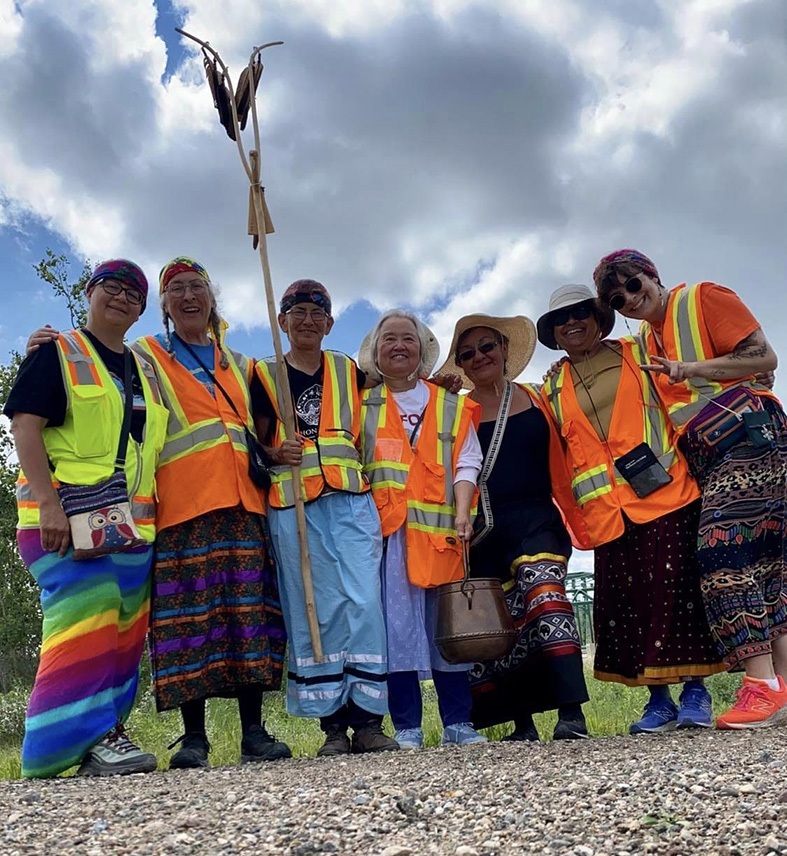
It’s for the water.
That’s what Elder Marjorie Beaucage says while trekking through the hot sun and heavy winds. She pushes through the early mornings and the sore feet, with little rest, all because the water needs her prayers.
“The droughts and the fires and all of the things we’ve walked through in the last three years, it has not even rained on us once,” said Beaucage.
“The earth is parched.”
Beaucage led a group of Saskatchewan residents on the third leg of a “water walk.”
It started in 2021, when they walked along the North Saskatchewan River from the Rocky Mountains to the Saskatchewan River Forks, where the North and South Saskatchewan Rivers meet.
Then, in 2022, they walked the South Saskatchewan River from Bow Valley, AB to Riverhurst.
The group started this year’s walk where they left off, marching from Riverhurst to the forks.
Beaucage said it’s been a difficult journey, but it’s rewarding.
“There’s so much beauty in the birds singing, cheering us on. The flowers, the wildflowers. We pray for all the land and everything that we have.”
Beaucage, who lives in Duck Lake, said she started her own river walk to continue the advocacy of Josephine Mandamin.
Known as the “grandmother water walker,” Mandamin walked the Great Lakes in Ontario from 2003 to 2017 to raise awareness for environmental deterioration. She died in 2019 at the age of 77.
“I always wanted to walk with her, but then she passed and I was telling that story and somebody said we should walk for this river,” Beaucage explained.
“All the waters are so sick,” she said. “I had to do it.”

Beacauge said the most challenging aspect of the walk is people. She said most haven’t shown respect for the water, unless it’s giving them something.
She cited a $4 billion irrigation project from Lake Diefenbaker.
In a 2020 news release announcing the project, the province said irrigation is a “building block for economic development.” This includes crop production, food security and employment, reads the release.
“It’s not just about this year and having the crops grow. The whole earth is suffering because of what’s happening, and we can’t just take it for granted that it will always be there just for us,” Beaucage said.
“It’s more than just the short-term thinking.”
A water walk is a Midewiwin tradition. Historically, the Midewiwin is a sacred spiritual society among Algonquin-speaking tribes in the Great Lakes region. It’s an important part of the Ojibwe way of life.
Beaucage said women are spiritually connected to the water through their ability to give life.
“Everyone was born in water from their mother’s womb,” she explained, making it particularly important for women to “protect the waters of life.”
Beaucage and the other walkers travelled 20 to 30 km every day.
This year’s walk has taken them through Whitecap Dakota Nation, Saskatoon, St. Louis, Batoche and Muskoday First Nation. This year, the walk began on June 17 and concluded July 1.

